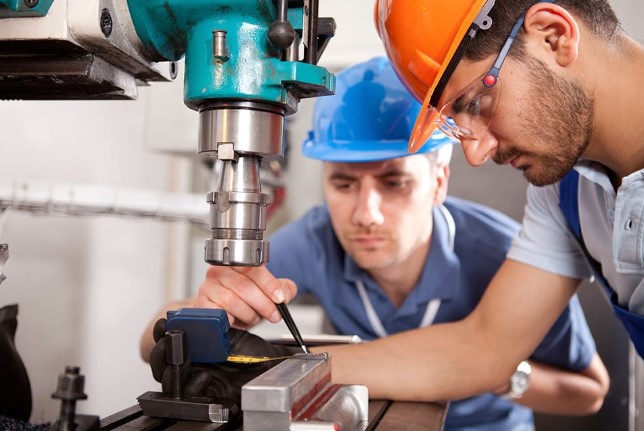Introduction
Manufacturing engineering plays a pivotal role in the modern industrial landscape. It encompasses a wide range of disciplines and techniques aimed at optimizing the production process and achieving efficient and cost-effective manufacturing. This article explores the diverse facets of manufacturing engineering, its significance, and how it revolutionizes the way we produce goods.
Manufacturing Engineering: A Comprehensive Overview
What is Manufacturing Engineering?
Manufacturing engineering is a branch of engineering that focuses on the design, development, and improvement of manufacturing processes. It involves the application of scientific and mathematical principles to optimize production, enhance product quality, and increase operational efficiency.
The Role of Manufacturing Engineers
Manufacturing engineers are responsible for planning, designing, and implementing manufacturing processes. They collaborate with other engineers, technicians, and professionals to ensure that products are manufactured efficiently and meet the required quality standards. Manufacturing engineers employ various tools and techniques to streamline production and address any technical challenges that may arise.
The Evolution of Manufacturing Engineering
Over the years, manufacturing engineering has evolved significantly to keep pace with technological advancements and market demands. Traditional manufacturing techniques have given way to innovative approaches such as automation, computer-aided design (CAD), and additive manufacturing. These advancements have revolutionized the production process, enabling faster, more precise, and cost-effective manufacturing.
The Significance of Manufacturing Engineering
Enhancing Efficiency and Productivity
Manufacturing engineering plays a critical role in improving efficiency and productivity within the manufacturing industry. By analyzing and optimizing production processes, manufacturing engineers identify bottlenecks, eliminate waste, and streamline operations. This leads to reduced cycle times, increased throughput, and ultimately, improved productivity.
Ensuring Quality and Consistency
Maintaining consistent product quality is crucial for any manufacturing business. Manufacturing engineers employ rigorous quality control techniques to ensure that products meet or exceed the required standards. They implement statistical process control (SPC), conduct thorough inspections, and develop robust quality assurance protocols to minimize defects and enhance customer satisfaction.
Cost Optimization and Waste Reduction
Manufacturing engineering aims to optimize costs by eliminating waste and improving resource utilization. Through lean manufacturing principles, such as just-in-time (JIT) inventory management and value stream mapping, manufacturing engineers identify areas of inefficiency and implement strategies to reduce waste, lower production costs, and enhance profitability.
Innovation and Technological Advancements
Manufacturing engineering is at the forefront of innovation and technological advancements. Engineers leverage emerging technologies such as robotics, artificial intelligence (AI), and the Internet of Things (IoT) to automate processes, enhance product design, and create smart manufacturing systems. These innovations enable manufacturers to stay competitive, adapt to market changes, and drive industry advancements.
FAQs about Manufacturing Engineering
FAQ 1: What educational background is required to become a manufacturing engineer?
To become a manufacturing engineer, one typically needs a bachelor’s degree in manufacturing engineering, industrial engineering, or a related field. Some positions may require a master’s degree or specialized certifications in specific areas of manufacturing.
FAQ 2: How does manufacturing engineering contribute to sustainability?
Manufacturing engineering plays a crucial role in promoting sustainability within the manufacturing sector. By optimizing processes, reducing waste, and implementing eco-friendly technologies, manufacturing engineers help minimize the environmental impact of manufacturing operations.
FAQ 3: What are some key challenges faced by manufacturing engineers?
Manufacturing engineers face various challenges, including integrating new technologies, managing complex supply chains, and balancing cost and quality considerations. They also need to stay updated with the latest advancements in manufacturing and continually adapt their skills to meet industry demands.
FAQ 4: What is the future outlook for manufacturing engineering?
The future of manufacturing engineering is promising. With the rise of Industry 4.0 and digital transformation, manufacturing engineers will play a crucial role in implementing advanced technologies, such as smart factories and autonomous systems. This will drive further efficiency, innovation, and competitiveness in the manufacturing industry.
FAQ 5: How does additive manufacturing impact manufacturing engineering?
Additive manufacturing, also known as 3D printing, has transformed the manufacturing landscape. Manufacturing engineers leverage additive manufacturing to create complex parts, reduce material waste, and accelerate prototyping and production. It offers new design possibilities and enables rapid iteration, making manufacturing processes more flexible and efficient.
FAQ 6: How can companies benefit from employing manufacturing engineers?
Companies that employ manufacturing engineers can reap several benefits, including increased operational efficiency, improved product quality, cost reduction, and enhanced innovation. Manufacturing engineers bring valuable expertise in optimizing processes, identifying opportunities for improvement, and implementing cutting-edge technologies.
Conclusion
Manufacturing engineering is a dynamic and essential discipline that drives innovation, efficiency, and productivity within the manufacturing industry. From optimizing processes to leveraging advanced technologies, manufacturing engineers play a crucial role in revolutionizing the way we produce goods. As the industry continues to evolve, manufacturing engineering will remain at the forefront of advancements, shaping the future of manufacturing.
Partner Site : Computer Technology, Health And Wellness, Addiction Treatment, Home Maintenance, Home Wine, Healthcare Information, Car Accident, Food Recipes, E-Sports News, Floor Care Advice
